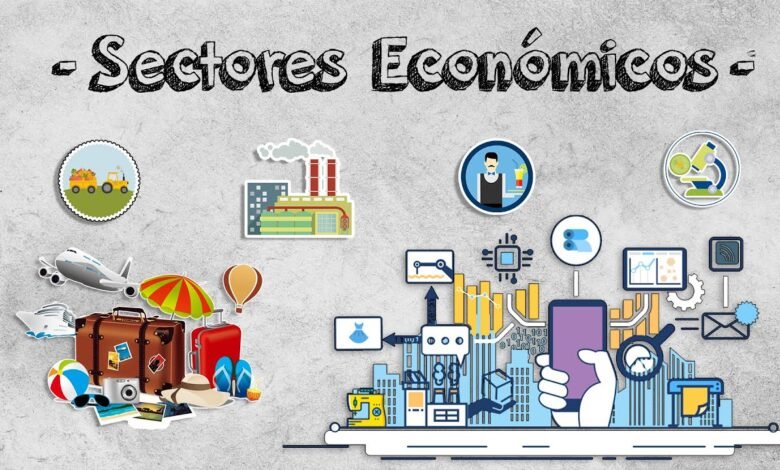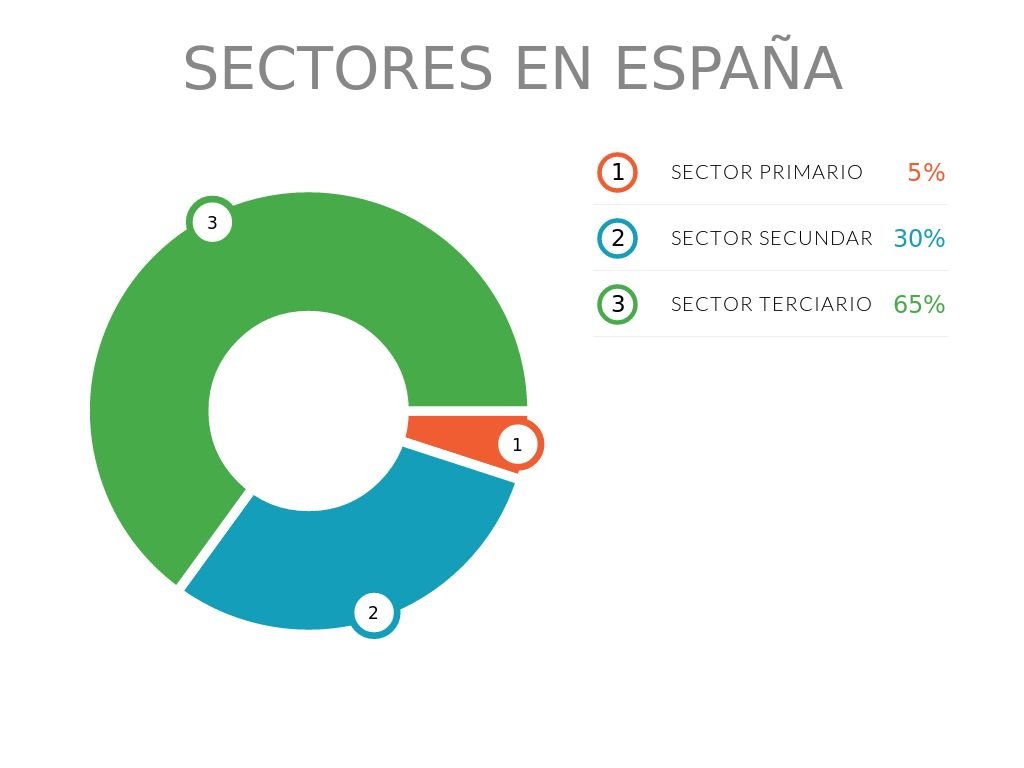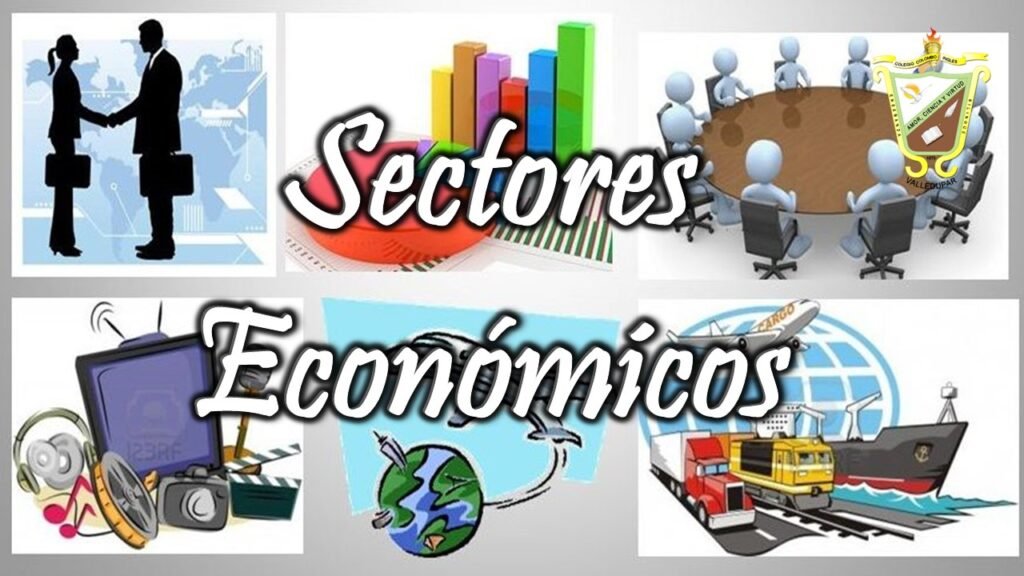https://finanzasdomesticas.com/sectores-economicos-de-espana/

The “https://finanzasdomesticas.com/sectores-economicos-de-espana/” are the different parts of Spain’s economy. Understanding these sectors helps us see how Spain makes money and supports its people. Each sector has a unique role and contributes to Spain’s overall economic health.
In this blog post, we will break down the “https://finanzasdomesticas.com/sectores-economicos-de-espana/” into easy-to-understand pieces. We will look at which sectors are the most important and how they affect everyday life in Spain. Let’s dive into these economic sectors and learn more about them!
What Are Sectores Economicos de España?
The “https://finanzasdomesticas.com/sectores-economicos-de-espana/” are different parts of Spain’s economy. Think of them like pieces of a puzzle that fit together to make the whole picture. Each sector has its own job and helps Spain in unique ways.
In simple terms, there are three main sectors: agriculture, industry, and services. Agriculture is about growing food and raising animals. Industry includes making things in factories. Services are about helping people, like teaching and healthcare.
Understanding these sectors helps us see how Spain’s economy works. Each one plays a special role in keeping the country running smoothly. Learning about the “sectores-economicos-de-espana/” shows us how different parts of Spain’s economy fit together.

The Biggest Sectors Economicos de España
Among the “https://finanzasdomesticas.com/sectores-economicos-de-espana/”, some are bigger and more important than others. The service sector is the largest in Spain. This sector includes jobs like teaching, banking, and tourism. Many people in Spain work in services because it covers so many areas.
The industry sector is also very big. This includes manufacturing cars, clothes, and electronics. Factories are a big part of Spain’s economy, creating products that people use every day.
Lastly, agriculture is crucial but smaller compared to services and industry. It includes farming and fishing. While fewer people work in agriculture, it is still important for providing food and raw materials.
How the Agricultura Sector Works in España
The agriculture sector is one of the “https://finanzasdomesticas.com/sectores-economicos-de-espana/” focused on growing food and raising animals. Farmers work hard to grow crops like wheat, corn, and vegetables. They also take care of animals such as cows, pigs, and chickens.
This sector plays a key role in providing food for everyone. Without agriculture, people would not have fresh fruits, vegetables, or meat. It’s also important for Spain’s exports, as many agricultural products are sold to other countries.
Farmers face challenges like weather changes and pests. Despite these problems, agriculture remains a vital part of the economy. It ensures that Spain has enough food and supports many jobs in rural areas.

Exploring the Industria Sector in España
The industria sector is a major part of the “https://finanzasdomesticas.com/sectores-economicos-de-espana/”. It involves making things in factories, like cars, clothes, and electronics. This sector is very important because it creates products that people use every day.
Factories are busy places where machines and workers turn raw materials into finished goods. For example, Spain makes many cars that are sold around the world. This helps the economy by creating jobs and generating money.
The industria sector also faces challenges. Factories need to use resources wisely and find ways to reduce pollution. Even with these challenges, industry continues to be a strong part of Spain’s economy.
The Importance of the Servicios Sector in España
The servicios sector is a key part of the “https://finanzasdomesticas.com/sectores-economicos-de-espana/”. This sector covers jobs that help people, like teaching, healthcare, and tourism. It’s the biggest sector in Spain and provides many different types of jobs.
People working in services help with daily needs and activities. For example, teachers educate children, doctors take care of health, and tour guides show visitors around. All these services are important for making life better and easier.
Tourism is also a big part of services. Many people come to Spain to visit famous places and enjoy the culture. This brings money into Spain and supports many jobs in the tourism industry.
How Tourism Fits into Sectores Economicos de España
Tourism is a major part of the “https://finanzasdomesticas.com/sectores-economicos-de-espana/”. Spain is known for its beautiful beaches, historic cities, and vibrant culture. Many people from around the world visit Spain for vacations, which helps the economy.
Tourists spend money on hotels, restaurants, and attractions. This spending supports many jobs in the hospitality industry. For example, hotel staff, restaurant workers, and tour guides all benefit from tourism.
The tourism sector also helps other parts of the economy. It encourages the growth of local businesses and services. By attracting visitors, Spain boosts its economy and showcases its unique attractions.
Growth and Changes in España’s Economic Sectors
Over time, the “https://finanzasdomesticas.com/sectores-economicos-de-espana/” have changed and grown. New technologies and trends impact how different sectors work. For example, the technology sector is growing fast with new inventions and innovations.
Industries like information technology and renewable energy are becoming more important. These new areas provide different kinds of jobs and help Spain stay competitive in the global market.
The agriculture sector is also evolving. Farmers use advanced tools and methods to grow crops and raise animals more efficiently. Changes in how people work and live affect all sectors of the economy, leading to new opportunities and challenges.
Why the Technology Sector is Growing in España
The technology sector is growing quickly in the “https://finanzasdomesticas.com/sectores-economicos-de-espana/”. This part of the economy involves creating and using new technologies, like computers, apps, and the internet. Technology is changing how people live and work.
Spain is investing in tech startups and innovation centers. These efforts help develop new products and services. The technology sector provides many high-paying jobs and is important for Spain’s future growth.
People in Spain are using technology in many ways, from online shopping to smart home devices. As technology advances, it will continue to shape the economy and create new possibilities.
How the Energy Sector Impacts España’s Economy
The energy sector is a key part of the “https://finanzasdomesticas.com/sectores-economicos-de-espana/”. It includes producing and using energy sources like oil, gas, and renewable energy. This sector is crucial because it powers homes, businesses, and transportation.
Spain is working on using more renewable energy sources, like wind and solar power. This helps reduce pollution and supports a cleaner environment. The energy sector is also important for creating jobs and supporting other industries.
Changes in energy use and production affect the economy. Using more green energy can lead to new technologies and industries. The energy sector plays a big role in Spain’s economic development and environmental goals.
Key Players in España’s Financial Sector
The financial sector is a big part of the “https://finanzasdomesticas.com/sectores-economicos-de-espana/”. It includes banks, insurance companies, and investment firms. These institutions help manage money, provide loans, and offer financial services.
Banks are important for saving and borrowing money. They support businesses and individuals by providing financial resources. Insurance companies protect people and businesses from risks by offering various types of insurance.
Investment firms help people and companies grow their money. They offer advice and services for buying and selling investments. The financial sector is essential for keeping the economy stable and helping people manage their finances.
Challenges Facing España’s Economic Sectors
The “https://finanzasdomesticas.com/sectores-economicos-de-espana/” face several challenges. Each sector has its own issues that can affect how it works. For example, agriculture faces problems with weather and pests, while industry deals with pollution and resource use.
The service sector must handle changes in technology and customer needs. Tourism can be impacted by global events or economic downturns. Each sector needs to adapt to these challenges to stay strong and support Spain’s economy.
Addressing these challenges requires innovation and cooperation. Finding solutions helps sectors remain vital and continue to contribute to Spain’s growth and development.
Future Trends in Sectores Economicos de España
Looking ahead, the “https://finanzasdomesticas.com/sectores-economicos-de-espana/” will continue to evolve. New trends and technologies will shape how these sectors operate. For example, the growth of digital technology will impact services and industry.
Renewable energy will become more important as Spain aims for a greener future. The technology sector will keep expanding with new innovations. Understanding these trends helps us see where Spain’s economy is heading.
Preparing for future changes is key for all sectors. Embracing new technologies and adapting to trends will help Spain’s economy stay competitive and prosperous.
Exploring Spain’s Agriculture Sector
Spain’s agriculture sector is a vital part of the “https://finanzasdomesticas.com/sectores-economicos-de-espana/”. It involves growing crops and raising animals, which provides food for the country. Farmers in Spain grow a variety of fruits, vegetables, and grains, and they also manage livestock.
This sector is crucial because it supports Spain’s food supply and contributes to the economy through exports. Spanish olive oil, wine, and citrus fruits are well-known worldwide. Farmers use modern techniques to improve crop yields and animal health.
Agriculture in Spain also faces challenges like weather changes and pests. Despite these difficulties, the sector remains strong and continues to play an important role in the Spanish economy.
How the Industrial Sector Shapes Spain’s Economy
The industrial sector is a significant part of the “https://finanzasdomesticas.com/sectores-economicos-de-espana/”. It includes manufacturing goods like cars, electronics, and machinery. Factories and plants across Spain produce a wide range of products that people use every day.
This sector helps Spain’s economy by creating jobs and generating income. It also supports other industries by providing essential products and materials. For instance, car manufacturers in Spain export vehicles to many countries.
The industrial sector is evolving with new technologies. Factories are becoming more automated and efficient, which helps keep Spain competitive in the global market.
The Role of Spain’s Service Sector in Daily Life
The service sector is a major part of the “https://finanzasdomesticas.com/sectores-economicos-de-espana/”. It includes activities that provide help or support to people, such as education, healthcare, and entertainment. This sector is the largest in Spain and plays a key role in everyday life.
Services like teaching and medical care are essential for well-being. The tourism industry also falls under this sector, bringing visitors to Spain and boosting the economy. Many people in Spain work in service-related jobs, helping to improve quality of life.
As Spain continues to grow, the service sector is expected to expand further. New trends and technologies will shape how services are delivered, making them more efficient and accessible.
How Tourism Boosts Spain’s Economic Sectors
Tourism is a big part of the “https://finanzasdomesticas.com/sectores-economicos-de-espana/”. Visitors come to Spain to enjoy its beaches, historic sites, and cultural events. Tourism helps boost the economy by creating jobs and generating revenue.
Tourists spend money on hotels, restaurants, and attractions, which supports many businesses. This spending also helps other sectors, like transportation and retail, as visitors need places to stay and shop.
Spain is known for its rich cultural heritage and beautiful landscapes. By attracting tourists, the country supports its economy and shares its unique experiences with the world.
Innovations in Spain’s Technology Sector
The technology sector is rapidly growing within the “https://finanzasdomesticas.com/sectores-economicos-de-espana/”. This sector includes tech companies that create software, gadgets, and new technologies. Spain is becoming a hub for innovation and tech startups.
New technologies, like artificial intelligence and blockchain, are changing how businesses operate. Tech companies in Spain are developing new solutions that improve daily life and drive economic growth.
Investing in technology helps Spain stay competitive globally. It also provides high-paying jobs and supports a modern economy that adapts to changing trends.
The Future of Energy in Spain
Energy is an important part of the “https://finanzasdomesticas.com/sectores-economicos-de-espana/”. This sector includes traditional energy sources like oil and gas, as well as renewable sources like wind and solar power. Spain is focusing more on green energy to protect the environment.
Renewable energy projects are growing, providing cleaner alternatives to fossil fuels. This shift helps reduce pollution and supports sustainable development. The energy sector is also investing in new technologies to improve efficiency.
As Spain moves toward a greener future, the energy sector will continue to play a crucial role in the economy and environmental efforts.
Key Economic Players in Spain
The “https://finanzasdomesticas.com/sectores-economicos-de-espana/” include various key players, such as banks, companies, and government agencies. These players contribute to the economy by providing essential services and resources.
Banks help people manage their money and support businesses with loans. Companies in different sectors, like manufacturing and services, drive economic growth and create jobs. Government agencies set policies and regulations that impact all sectors.
Understanding these key players helps us see how different parts of Spain’s economy work together. They each have a role in supporting economic stability and growth.
Overcoming Challenges in Spain’s Economic Sectors
Spain’s “https://finanzasdomesticas.com/sectores-economicos-de-espana/” face various challenges that impact their performance. Each sector has its own set of issues, such as economic downturns, changing regulations, and technological disruptions.
For example, the agricultural sector deals with weather conditions and pests, while the industrial sector faces competition and resource management. The service sector must adapt to changing customer needs and technological advancements.
Finding solutions to these challenges is important for maintaining a strong economy. Each sector needs to innovate and adapt to keep contributing to Spain’s overall economic health.
Trends Shaping Spain’s Economic Sectors
Current trends are influencing the “https://finanzasdomesticas.com/sectores-economicos-de-espana/”. These trends include technological advancements, changes in consumer behavior, and environmental concerns. Each sector is adapting to these trends in different ways.
For example, the technology sector is growing with new innovations and startups. The service sector is evolving with more digital services and online options. The energy sector is focusing on renewable sources to address climate change.
Understanding these trends helps us see how Spain’s economy is changing and what the future might hold for different sectors.
Spain’s Economic Sectors and Global Trade
Global trade plays a big role in the “https://finanzasdomesticas.com/sectores-economicos-de-espana/”. Spain exports many products and services to other countries, which helps boost the economy. This includes goods from agriculture, industry, and technology sectors.
Trade helps Spain connect with other economies and access new markets. It also supports jobs and business opportunities within Spain. For example, Spanish companies export cars, olive oil, and wine to international markets.
Being part of global trade networks helps Spain grow economically and strengthen its position in the global market. Understanding trade’s impact on various sectors shows how interconnected the world economy is.
How Spain’s Economic Sectors Adapt to Change
The “https://finanzasdomesticas.com/sectores-economicos-de-espana/” are constantly adapting to changes in the economy and society. Each sector must respond to new challenges and opportunities to stay relevant and successful.
For instance, the technology sector is quickly evolving with new tools and platforms. The agriculture sector is adopting modern farming techniques to improve productivity. The service sector is expanding with new digital services and customer-focused innovations.
Adaptation is key for maintaining a strong economy. By staying flexible and open to change, Spain’s economic sectors can continue to grow and meet the needs of the future.
Conclusion
In conclusion, the “https://finanzasdomesticas.com/sectores-economicos-de-espana/” are essential parts of Spain’s economy. Each sector, whether it’s agriculture, industry, or services, plays a special role in making Spain run smoothly. Understanding how these sectors work helps us see why they are important and how they support the country’s growth. As Spain moves forward, these economic sectors will keep changing and growing. New technologies and trends will shape how they operate. By staying updated on these changes, we can better appreciate how Spain’s economy evolves and continues to thrive.


